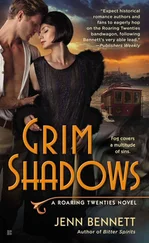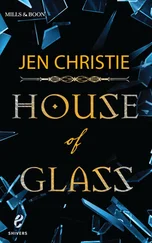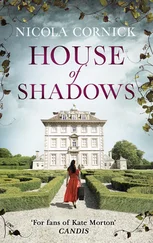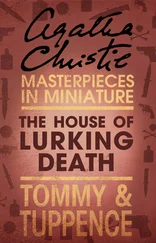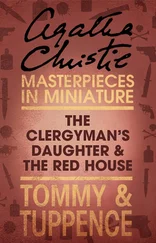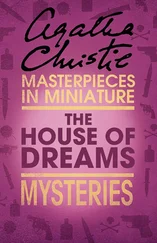She took fast, short steps and went from room to room on the first floor, seeing unbelievable and frightening items everywhere she turned. The house had always been extravagant, but now it seemed garish. Every room was crammed with shiny and bizarre objects, things she didn’t understand and was afraid to touch.
A huge mirror hung on the wall by the kitchen and her own shadowy form reflected back at her. Even she looked different. It was as if a ghost stared at her, coated in dust, hair wild and tumbling, the whites of its eyes glowing brightly. She had a horrible thought as she looked at herself. She’d died.
“I’m not dead,” she said loudly, voicing that horrible thought. A worse thought sprang up behind it. Perhaps she’d been trapped in a kind of purgatory. A place between life and death.
“No.” She shook her head wildly. So did the shadowy figure in the mirror. Leaning forward, she insisted to the image, “I’m alive. Alive.” But her image seemed to stare back at her with accusing eyes and Penrose backed away, shaking.
The kitchen was unrecognizable, with silver equipment that had blue flashing lights on the different pieces. She knew it was a kitchen because of the sink, the knives that hung from the wall and the bowl of fresh fruit sitting atop the counter. A piece of paper lay beside the bowl, and by the dim blue light she read:
Dear Keat,
Welcome back to Arundell. Everything should be in order. The kitchen is stocked. The robots have been delivered and set up. If you need anything, just call. Enjoy your time by yourself. Please, try to relax. Stop worrying. You do your best work that way.
—V
The note called this home Arundell, but unless the world had changed overnight, this was not Arundell. Not the Arundell she knew.
Part One
All in the dark we grope along,
And if we go amiss
We learn at least which path is wrong,
And there is gain in this.
—Ella Wheeler Wilcox
Chapter 1
Charleston, South Carolina
August 18, 1886
Penrose Heatherton stood at the window, her face lifted to the night sky, hoping for wind. But there was no wind to speak of. The skies were speckled with stars. The moon hung lazy and bright. It was a perfect Charleston summer evening and gave no hint of the troubles that lay ahead of her.
It was hot enough to boil water that night, and she wore her underthings in a futile effort to stay cool. The clothes clung to her damp skin and her black hair hung in sweaty strands. She fanned herself listlessly with the want ads from the newspaper. The effort only made her hotter. It didn’t help that she’d just returned from the kitchen downstairs where she’d washed dishes for hours to help reduce the amount of rent she had to pay.
Rent. A knot of worry twisted in her chest and she rested her head against the window frame. Rent was due in the morning, and, even at a reduced rate, she had no way of paying. Renting her room at The Winding Stair Inn & Pub had already taken all of her funds.
She turned her face to the moon, pleading for wind. Tattered clouds sailed across it, scattering silvery light on the ground. None reached her. “Please,” she whispered, hoping, waiting, for a gust to come and cool her down.
It seemed that, lately, she was always waiting. For a cool breeze or a hot meal, for a permanent job, for any sliver of relief, no matter how small, that would help fix the mess her life had become. She was tired, so very tired of waiting.
She tossed the want ads out of the window and watched as they fluttered to the ground. Worthless. If she’d learned one thing since her mother died six months earlier, it was that relief didn’t come easy. If it came at all. No, she was beginning to understand the bitter truth—that if you wanted relief you had to grab it for yourself.
But you can’t grab the wind, so she stood there sweating. Sighing, she went to the cot and lay down. If it got any hotter, even one degree, she would melt into a puddle. But right when she thought that was about to happen, there came a change.
A gust of wind slipped through the window and eddied in the small space. It was a strange wind. Wintery, cool and dry, with a touch of wildness to it. The breeze tossed about the room and swirled around Penrose like a cool promise. She sat up, feeling it slip and slide over her skin, and she had the sense that something, anything could happen.
Right at that exact moment, she heard the sound of boots walking down the hall. The footsteps belonged to Mrs. Capshaw, the landlady of The Winding Stair Inn & Pub. Her walk was distinctive. When it came your way you knew she wanted something, and sure enough, it was coming Penrose’s way.
Not a moment later, the door flew open as the landlady swept into the tiny room. There was barely space for her, but she didn’t seem to care. Mrs. Capshaw was an ample woman with frizzy red hair and a bosom that sat like a shelf over her stomach. She had sharp, assessing brown eyes, which right then took in the sight of Penrose lounging on the bed. She said in her tough-as-nails voice, “Look sharp, Penny. There’s an opportunity for you downstairs.”
Instantly, she had Penrose’s attention. “What opportunity?”
Mrs. Capshaw was an enterprising woman, always on the lookout for any venture that would be advantageous. Coming from her, an opportunity could mean a million different things, most of them dubious. But opportunities were rare, and Penrose was desperate.
Another cool gust of wind blasted into the room, slamming the door shut. The older woman yanked it open again and held it in her meaty fist. “If you’re clever,” she said, leaning over Penrose and staring at her hard, “and I know you are, you’ll listen carefully.”
“I’m listening,” said Penrose. She rubbed her arms as she listened. The temperature in the room must have dropped twenty degrees.
Mrs. Capshaw continued, “Right at this moment, there’s a woman sitting at a table downstairs. She reminds me of you so very much, young and full of distress. Another sad story, I’m sure. Except unlike you, she’s downright foolish. I think you might have a chance to secure a well-paying—” she looked at Penrose meaningfully “—and respectable job.”
Penrose jumped up. “Tell me. Is it a teaching position?”
“No. Better.” Mrs. Capshaw’s sharp brown eyes narrowed and she lowered her voice to a whisper. “The lady is on her way to a post that her agency secured for her. She needs a room while she travels.” She smiled, a small twist of the lips. “But she is sitting there downstairs right now, blabbing for all the world to hear about her doubts and fears over the position.”
That was interesting news. “Go on,” said Penrose.
“She’s to report the day after tomorrow. Seven a.m. sharp. But, she’s reluctant. In fact, she’s more than reluctant.”
“More than reluctant?”
“She’s terrified,” Mrs. Capshaw blurted out. “I’m telling you straight off to get it out of the way.” She shrugged as if it were of little consequence. “She’s heard rumors. It seems her agency was less than forthcoming about the post. Her employer is a troubled individual and the house might be haunted.”
For the first time, Penrose felt wary, but just a bit. It was a job, after all. She hedged. “How troubled? And what kind of hauntings? The rumors must be awful for her to reconsider.”
“Awful?” Mrs. Capshaw threw her hands into the air. “What can be awful about regular income and a roof over your head?” Her voice lowered an octave as she said, “And wages that would make your eyes pop right out of your head. And, truthfully, do you believe in ghosts?”
“No, I don’t.” Penrose felt breathy. For decent wages, she’d be blind to a lot of things. Including ghosts. And regular pay? Something she could barely imagine. But she wasn’t a babe in the woods. She was twenty-one. Old enough to know a thing or two. Something was wrong. “Still...why such high wages? Something doesn’t ring true. Maybe there’s truth to the rumors.”
Читать дальше



